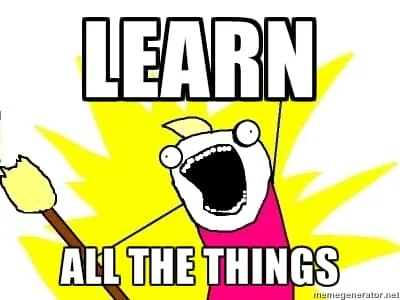If I ask you about how you want to do in the IB, you’re probably thinking you want to do really well! Ok maybe you’re just hoping to pass at this point – but either way you have a score in mind you want to achieve. The struggle is attaining that score. But why is it so difficult?
Well one of the reasons is that your brain isn’t very smart. …Ok that’s a lie. Your brain is actually incredibly capable – in fact it took a supercomputer with 1.4 million GB of RAM 40 minutes to process 1 per cent of 1 second of brain activity. In fact the human brain is amazing. The problem is…it isn’t very focussed.
The problem is with the IB you need to focus down in order to get those grades. The chances are you want to do well in the IB so you probably start thinking about all the things you’re going to do to achieve success. Do extra maths tests, stay in school after hours, get ahead in all the projects, catch up all the projects, score 100% in all the tests and be the BEST STUDENT EVER!

Well those are great intentions – you can be the best student ever. But not like that. You need to be focussed, to identify clear targets for what you want – and need – to achieve and then work steadily toward them. Think less Flubber more Terminator.
So how is this God Mode focus even possible. Actually it isn’t that hard. You start saying no to pointless things. ‘But wise blog post, how do I know what is pointless when everything in the IB is so important?’. Ok good question, but it’s mostly your panic talking. There’s basically 3 rules we can use:
The rule of purpose
Identify the purpose of the task. This is the first rule to deciding what to spend time on. It’s easy to panic if you have a test in math and to think if you fail it’s the end of the world. Actually 99% of the time it makes no difference at all. So you have to identify how important something is. Actual IB Exams = Very important, extra credit homework = not important.
Now you can see how that piece of work affects your Goal IB Points and say no to things that aren’t important.
The rule of diminishing returns
Ok so now you’re just working on the important stuff and that’s great. Now let’s talk about diminishing returns. This is the idea that as something gets better it takes more effort to improve it further. Which makes sense when we think in terms of a piece of history coursework. Doesn’t take that much effort to get a 3, but to push that up to a 5 is quite tricky. Getting that up to a 6 is hard and up to a 7 is really tough. The trick here is to know when enough is enough. If your teacher says you’re almost up to the next grade then you better start putting in the effort to get over the boundary. However, if your teacher says your coursework is fine, then putting in an extra 20 hours might not be that useful – especially if you could have used that time better somewhere else.
So next time you’re memorising definitions for physics, and you get 99% right, consider whether it is worth studying more of the same to try and get 100% or whether you would be better off spending time on something easier to affect.
The rule of the big picture
Always always always have the big picture in mind. This means think about your goals and what you need to get there and then work on only the things that help you get where you want.
Maybe you want to study engineering at university and need a 6 in maths, a 6 in physics and 35 points overall.
If this is the case then remember that getting a 7 in biology isn’t the goal. and getting 40+ points isn’t your primary goal. Your first and most important goal is to get those 6’s in maths and physics (and to get yourself over the 35 pt boundary). This means understanding electromagnetism well enough that it doesn’t drag your physics score below a 6. That is much more important than your history homework unless your history is pulling you below the magic 35.
Using the big picture will mean you get way less distracted by all the demands that every teacher and subject puts on your time.
And that’s it! Follow the 3 rules to decide what is important and cut everything else out. If you do this you will find your scores shooting up in no time! Good luck!

Check out our free IB resources here!


